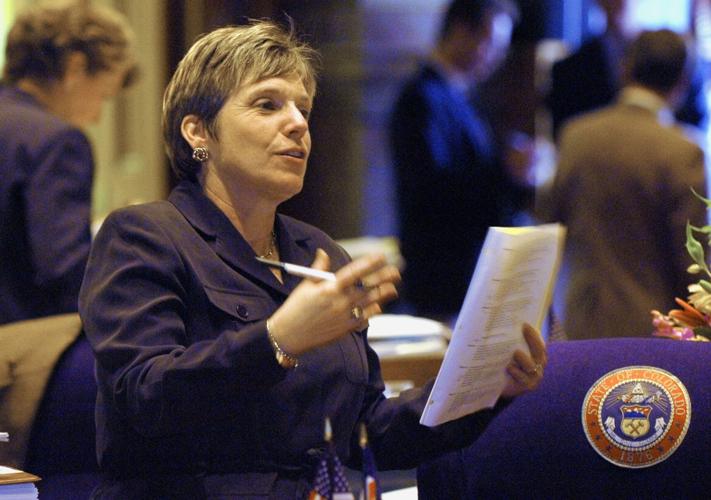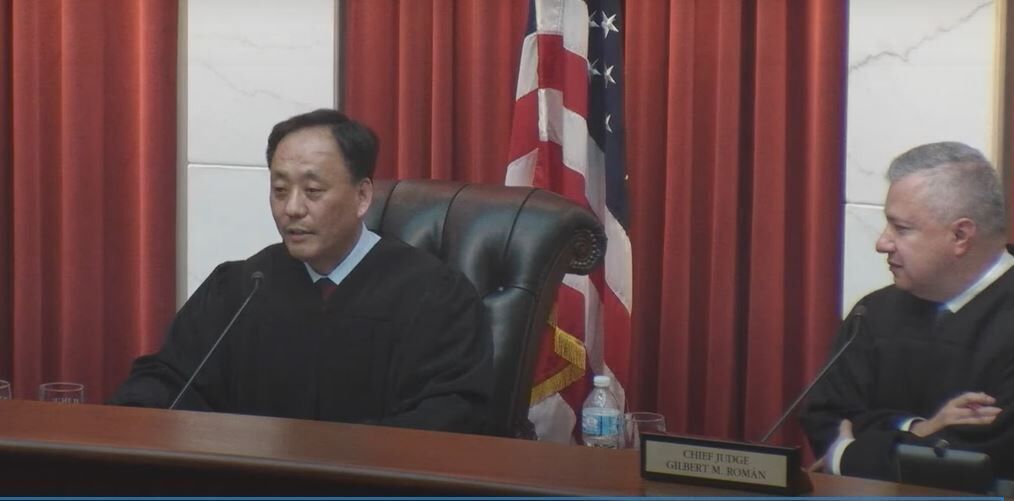Ruling that voided Colorado’s ‘midnight gerrymander’ prevents mid-decade redistricting | TRAIL MIX

(AP Photo/David Zalubowski, file)
Colorado can’t join in the frenzy currently sweeping a handful of solidly partisan states across the country whose Republican or Democratic leaders, respectively, are plotting to redraw congressional districts in a bid to sideline the opposition and give their own party an advantage in next year’s midterm elections.
Hardly any prominent Colorado Democrats have called for the state to scramble its congressional maps in the middle of the decade in hopes of giving the party’s congressional candidates a leg up, like other states under single-party control are in the process of doing.
But even if they wanted to, a state constitutional amendment approved overwhelmingly by voters and a decades-old Colorado Supreme Court decision — overturning a Republican attempt to create safer GOP districts in Colorado — stand in the way.
This summer’s gerrymandering arms race kicked off in July when President Donald Trump urged fellow Republican Texas Gov. Greg Abbott to ditch the state’s already tortured U.S. House district lines and produce a map designed to deliver five additional seats to the GOP.
Under a proposal drafted by the state’s ruling Republicans during a special legislative session called last month by Abbott, the party stands to swell its 25-13 seat advantage to a possible 30-8 blowout, largely by packing more Democrats into fewer districts anchored around the state’s urban centers.
While House district maps are usually drawn just once a decade, after the census, states have occasionally had to redo their boundaries to satisfy court orders that found previous lines violated legal or constitutional requirements. Texas Republicans are pegging their mid-decade mulligan on just such a ruling, though critics call their argument a transparent pretext for a power grab.
Texas Democrats stalled the plan’s adoption for a few weeks by fleeing the state in order to deny GOP lawmakers the legislative quorums they need — ironically, seeking safe haven in Democratic-run Illinois, awarded the same failing grade as Texas by Princeton University’s Gerrymandering Project — but this week agreed to return.
In response, California Gov. Gavin Newsom is threatening to retaliate by initiating a complicated maneuver that could yield the same number of additional seats for his party in the heavily Democratic state, where Republicans currently hold just nine of 52 U.S. House districts.
Since the tit-for-tat battle between governors of the country’s two largest states commenced, as many as a dozen other states have floated the possibility of joining the fray.
The political stakes couldn’t be higher.
Republicans control the presidency and both chambers of Congress, but polling and history suggest that Democrats have a good chance in 2026 of winning back the House of Representatives, where the party that doesn’t occupy the White House typically gains seats in the midterms.
Such an outcome would give the opposition the ability to block legislation and investigate the Trump administration, something Republican lawmakers have so far declined to do.
With Republicans enjoying one of the slimmest House majorities in nearly a century — Democrats need to flip just four seats next year to take the gavel — politicians and organizations who at least once gave lip service to the principle of drawing fair, competitive district boundaries have instead declared that it’s time to “fight fire with fire,” as Newsom puts it.
In Colorado, former U.S. Rep. Yadira Caraveo, one of seven Democrats running to regain the seat she won in 2022 — and lost in 2024 — in the closely divided 8th Congressional District, called on state Democrats to “fight back.”
“Donald Trump and his MAGA supporters are trying to stack the deck so they keep the House, even if Americans vote overwhelmingly to kick them out in 2026,” Caraveo said in a statement, adding, “I applaud Democrats around the country who are moving to redraw their own maps to counter this MAGA power grab and urge Colorado to repeal our independent commission and do the same.”
Two of the state’s leading Democrats, Gov. Jared Polis and U.S. Sen. John Hickenlooper, however, splashed cold water on the notion that Colorado should get on board with what a spokesman for Polis called “a craven and cynical mid-decade redistricting ploy” in a statement to Rocky Mountain PBS.
Hickenlooper told Semafor that the Texas GOP’s plans are wrong but added that didn’t change his mind about Colorado’s approach. “It’s this win-at-any-cost devolution of our political system,” he said. “But I don’t think the response is to undo the good work that’s been done.”
Colorado voters in 2018 overwhelmingly approved constitutional amendments that created independent redistricting commissions tasked with establishing congressional and legislative district boundaries once a decade, under the notion that voters should pick their politicians instead of politicians picking their voters, as anti-gerrymandering advocates put it.
Although voters could repeal the 2018 amendment, that can’t happen until next year’s election, at the earliest, under another provision of the state constitution that restricts statewide ballot questions in off years to topics related to the Taxpayer Bill of Rights, or TABOR.
Also preventing the move: A 2003 decision by the Colorado Supreme Court, who ruled 5-2 that the state’s constitution forbids mid-decade redistricting after the GOP-controlled legislature passed a law earlier that year to do just that.
Encouraged by Bush White House advisor Karl Rove, majority Republicans rammed a redrawn congressional map — derided as the “midnight gerrymander” — through the General Assembly in the final hours of the 2003 session, suspending rules and drawing howls of protest and hours of filibustering from Democrats.
The new map, designed to cement the GOP’s advantage in the competitive 3rd and 7th congressional districts, was supposed to replace a map drawn two years earlier when Democrats controlled the state Senate by a Denver District Court judge, who stepped in after the two chambers couldn’t agree on districts lines following the 2000 census. Under the GOP’s plan, Democrats would have been able to carry only two of the state’s seven congressional districts, based in Denver and Boulder.
Attorney General Ken Salazar — the only Democrat holding statewide office at the time — objected that the scheme was unconstitutional, but Republican Gov. Bill Owens signed the bill, sparking court challenges that resulted in a state Supreme Court ruling that Colorado’s constitution limited redistricting to once a decade.













